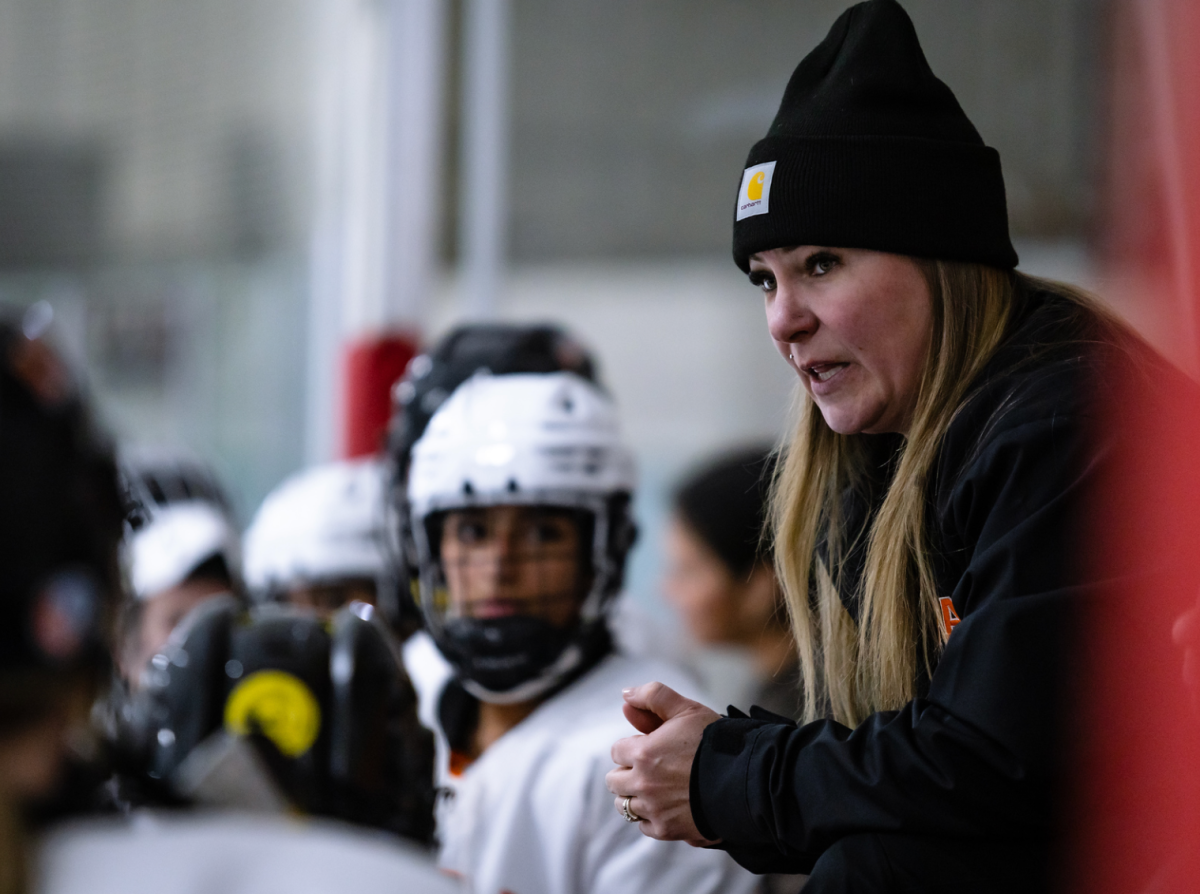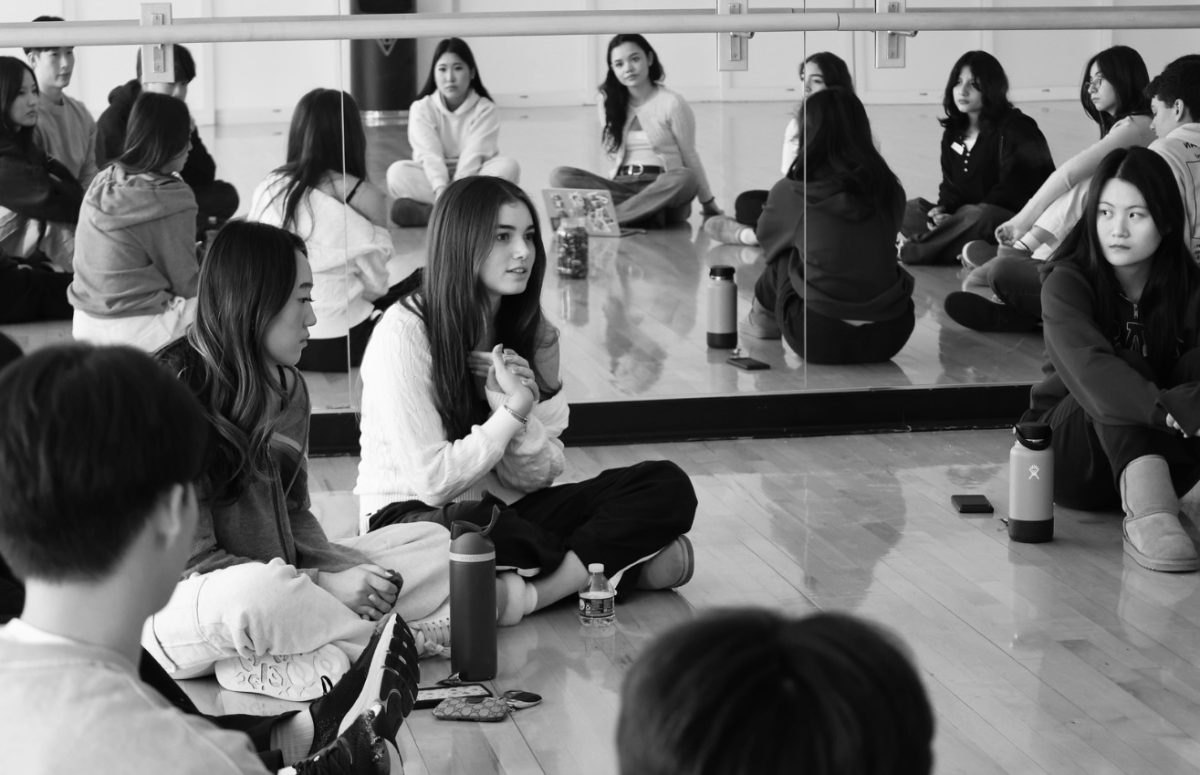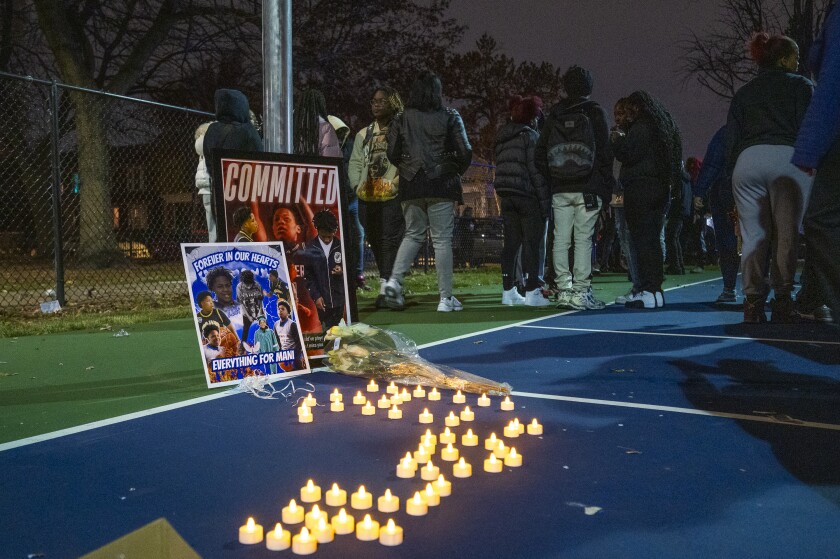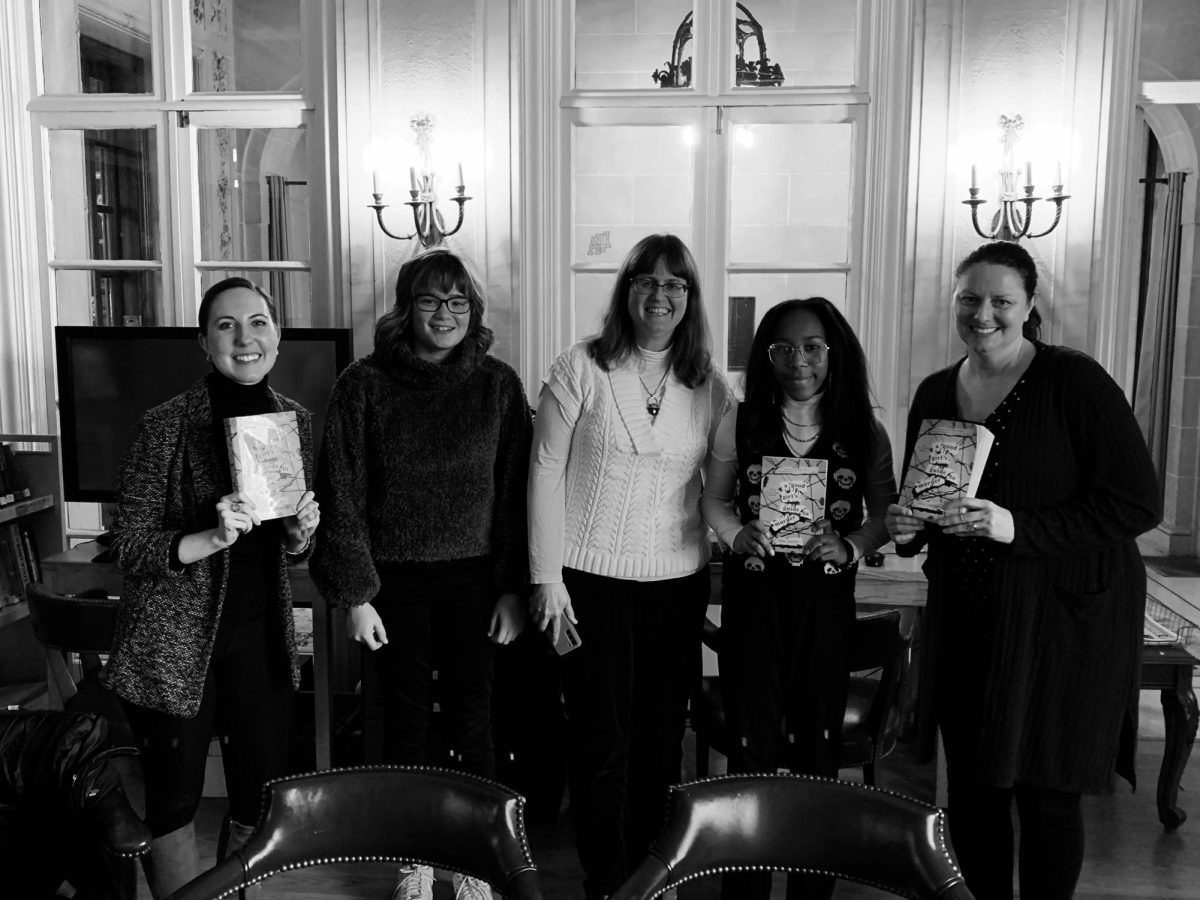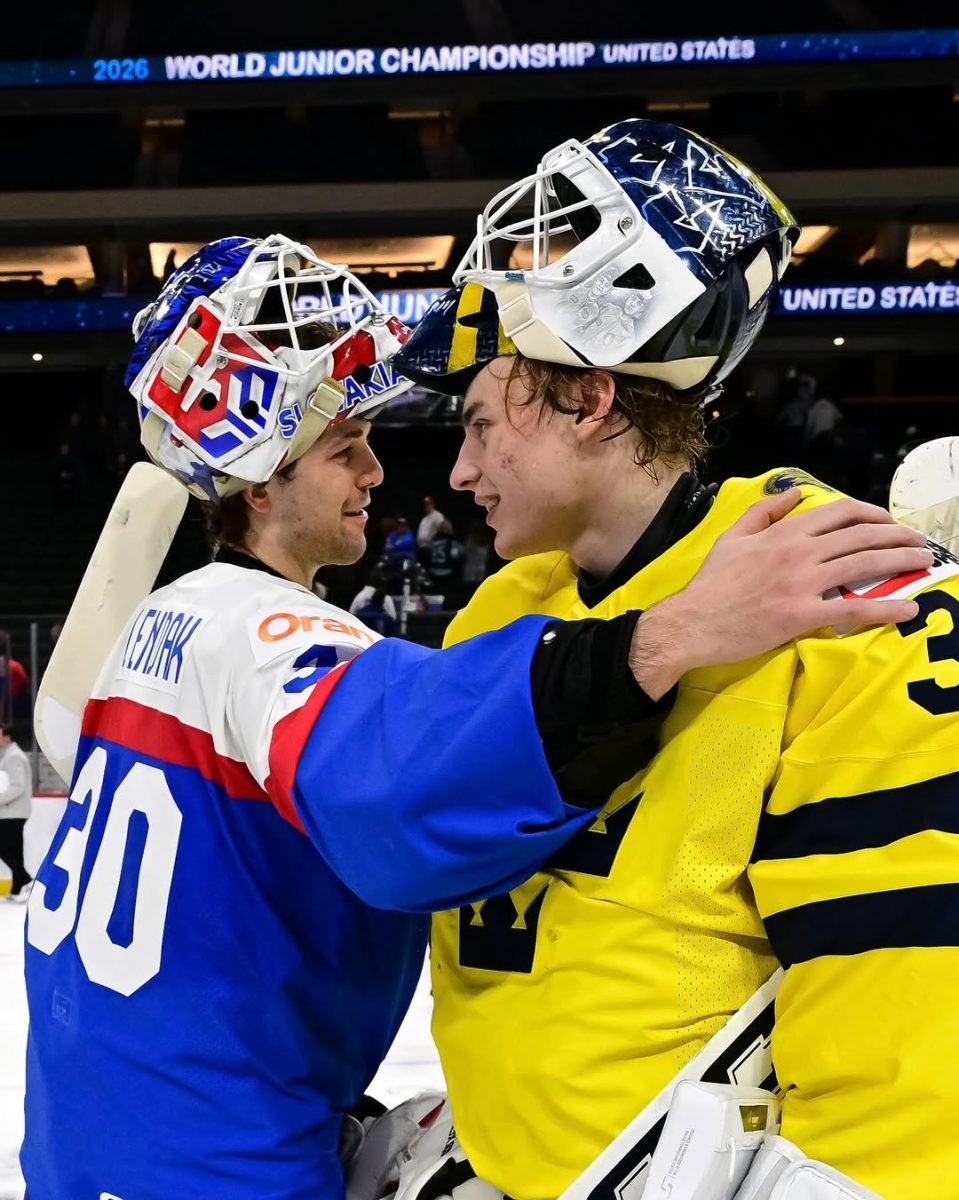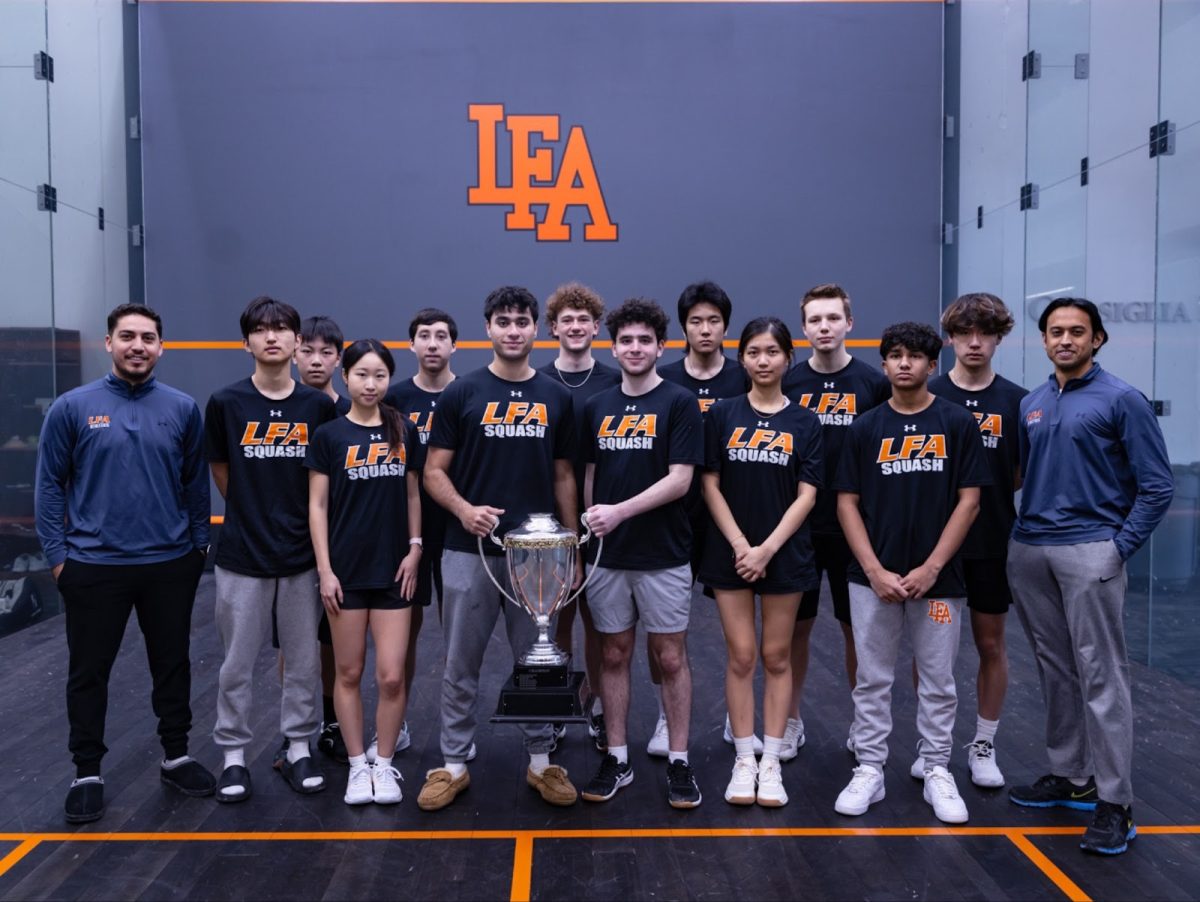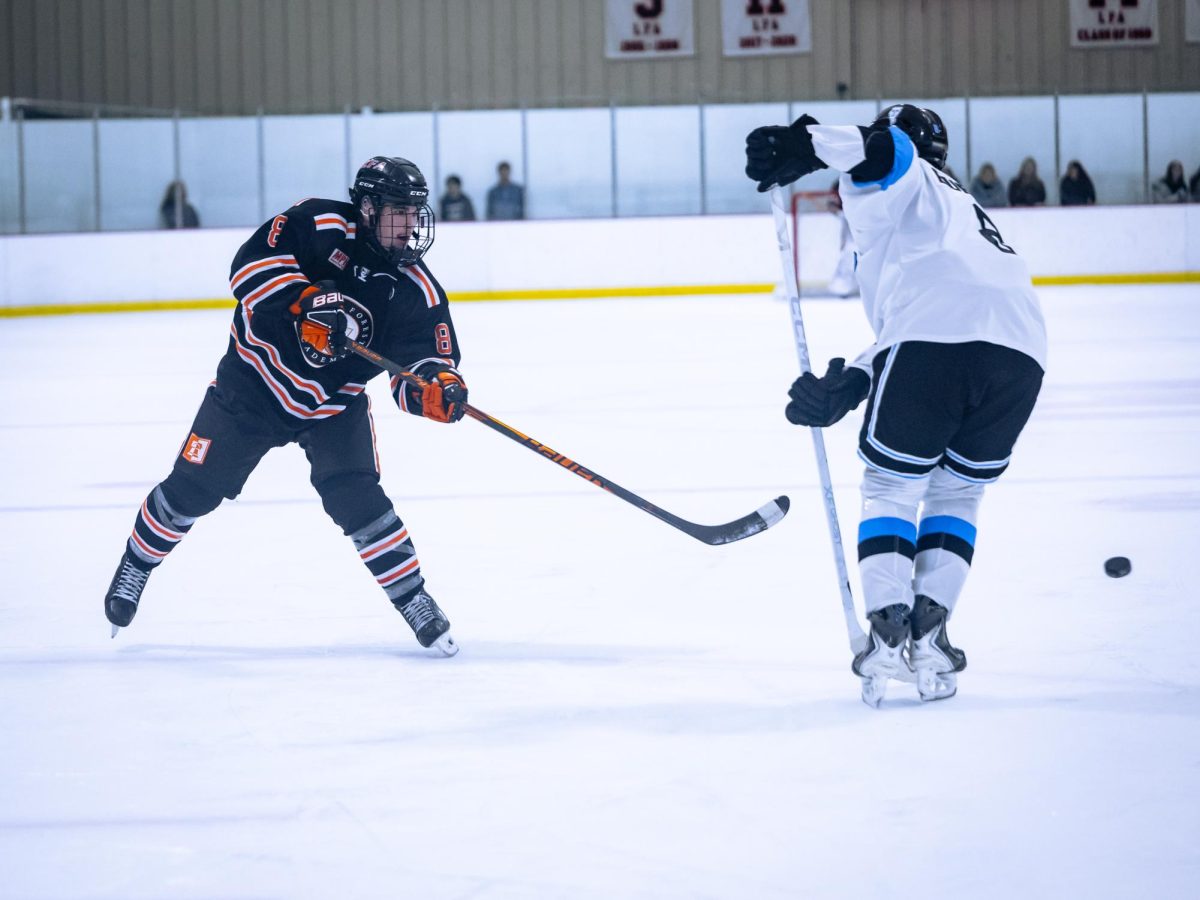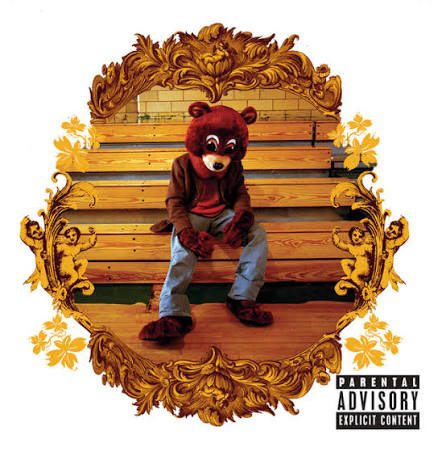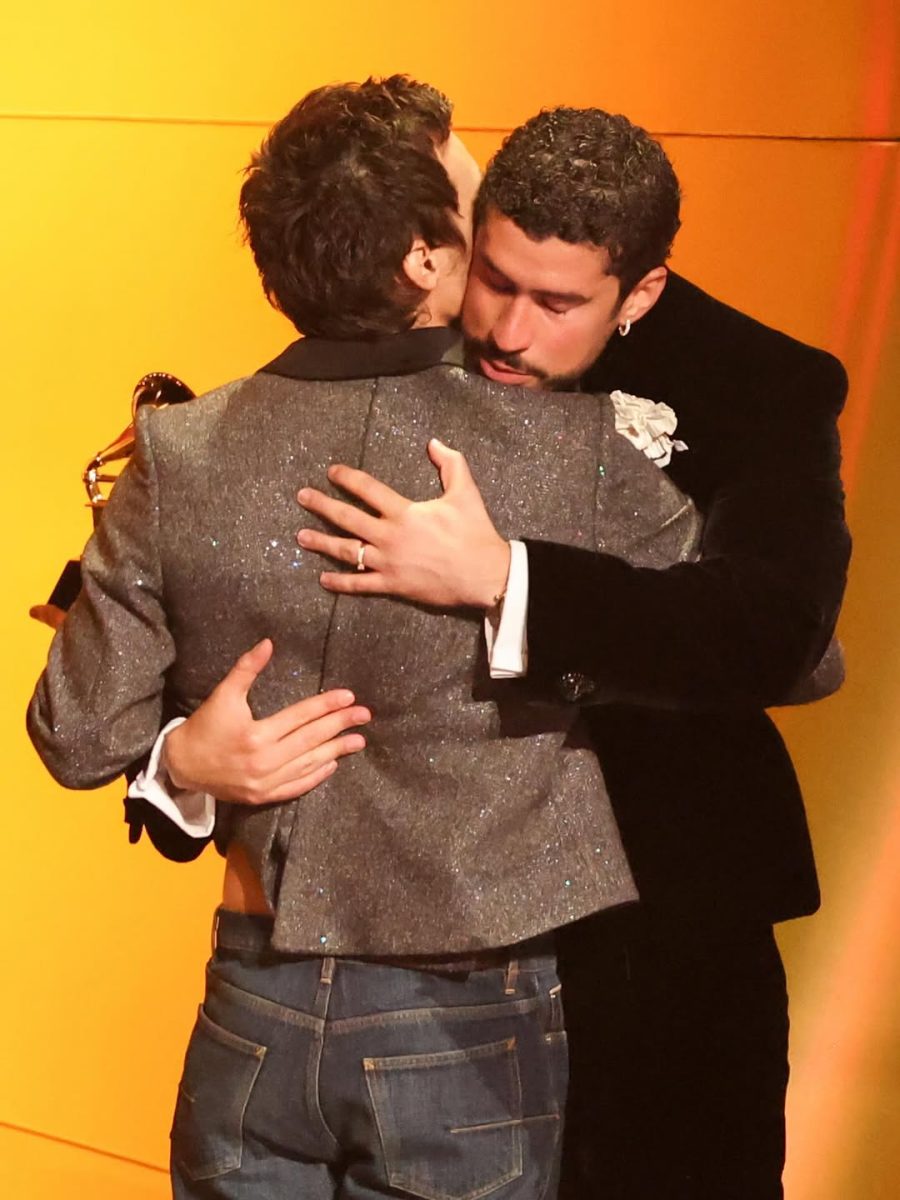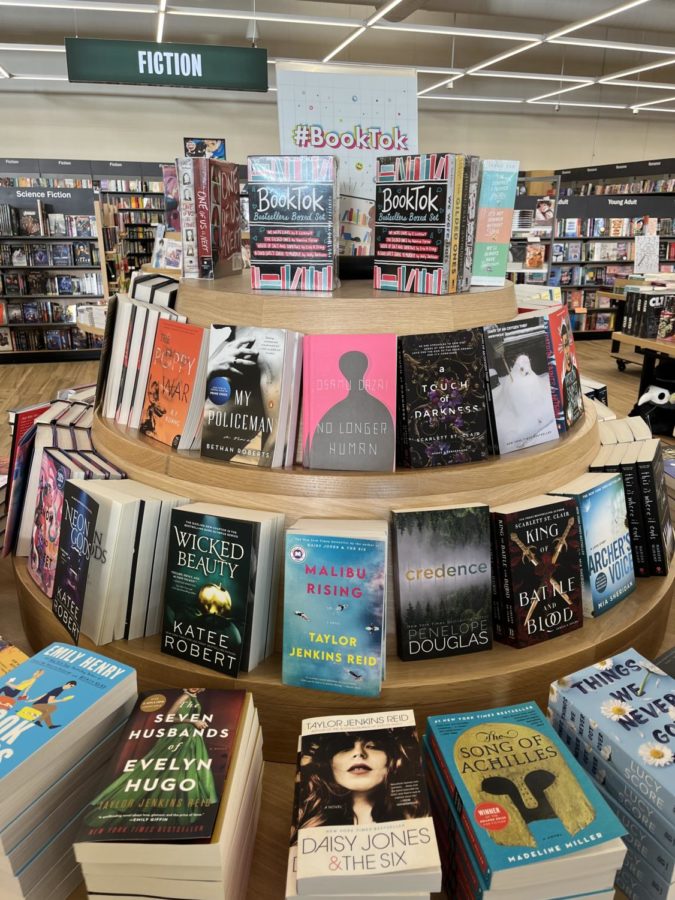#Booktok: Turning the Table on Teen Reading
Photo by Avery Martin
The #BookTok section at Barnes and Noble.
October 6, 2022
Amid the technological revolution, teens are spending more time on social media than reading in their freetime, but the rise of #BookTok has interrupted this pattern in its tracks. As a trending hashtag on the popular video-making app Tik Tok, #BookTok is any video listed under the hashtag. It typically includes teen-to-teen book recommendations about certain relationship tropes and genres – essentially a virtual book club. Over the past few years, media apps have been accused of contributing to the decline in teens reading outside of school, but the growing popularity of #BookTok – with 35 billion views under the hashtag –is turning the tables and getting the numbers back up again. Even Barnes and Noble has caught wind of this pattern, with a new section called #BookTok that displays popular book recommendations from the app.
The effects of BookTok isn’t just something that exists in the headlines though, but in LFA classrooms as well. Lydia Wells, a co-advisor of the Book Club, recalled “the club used to just have about two kids, but now about 15 to 20 students have approached me and Mrs. MacAyeal asking to join it”. More and more teens are reading for enjoyment, and this can’t help but correlate to the rise of #BookTok.
BookTok has grown to love a few books in particular, skyrocketing their purchases. Praise spread about Colleen Hoover’s It Ends With Us as sales went from 53% to 141% in just a few quarters. Other popular books include Song of Achilles which jumped 68%, and Seven Husbands of Evelyn Hugo which jumped 72% once BookTok got a hold of it. Additionally, almost every BookToker will recommend The Secret History by Donna Tartt and Circe by Madeline Miller.
Typically, BookTok recommendations will lean towards genres of fantasy and romance. Some of the fan favorite romantic tropes are friends-to-lovers, enemies-to-lovers, forbidden love, pretend relationships, and so on. What makes BookTok so extraordinary is that people will recommend books of certain tropes or genres, sharing full lists on the app.
Additionally, it has created a space for members of the LGBTQ+ community to share romance recommendations that may not be as popularized as heterosexual romance novels. For example, BookToker @gabwithgaby created a public Google Spreadsheet featuring ‘women loving women’ book recommendations, based on an array of different romantic tropes.
Not only is BookTok a way to make reading more accessible, but it is helping to destigmatize reading as something that is only done in school. Wells said, “I think we need to get away from thinking of reading as only stuffy dusty classics. It’s not. It can be a graphic novel. It can be a podcast. It can be, you know, an interesting fiction or nonfiction book.” Reading for fun versus reading for school is “just a different process.”
This active destigmatization and romanticization of reading for fun through BookTok is pushing more teens to read. For just being a hashtag on a social media app, the effects of BookTok are pretty remarkable.

